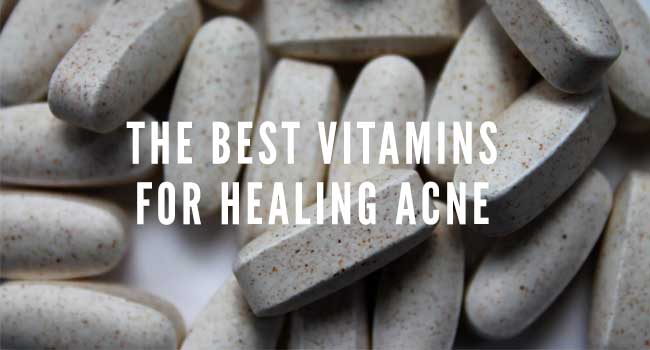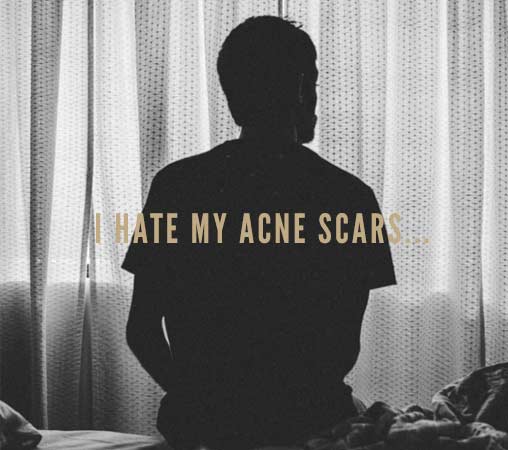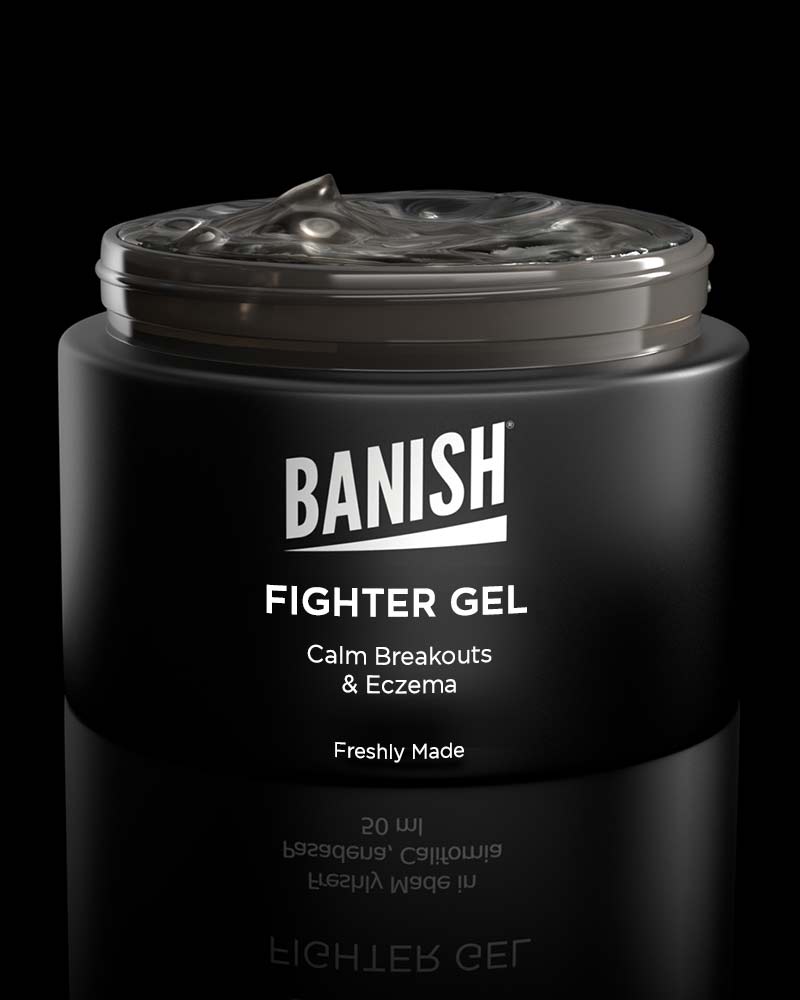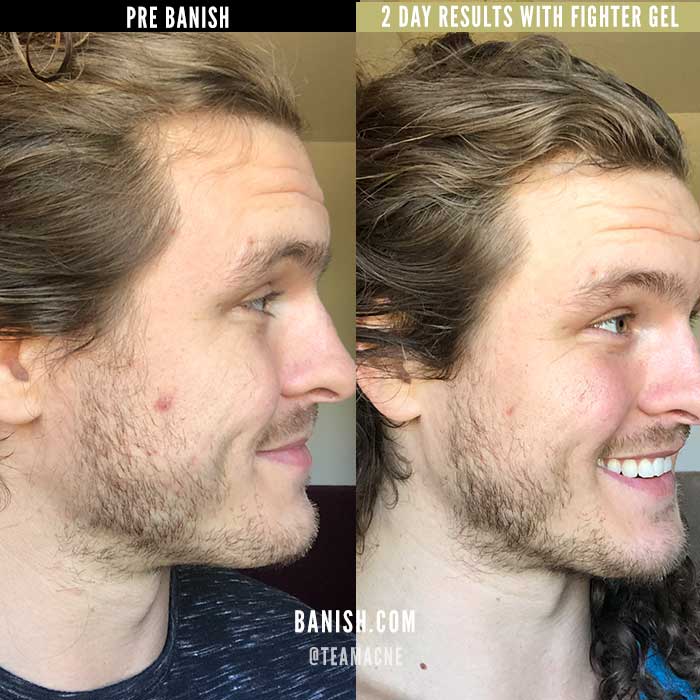By Samantha
Acne can strike at any age to any one regardless of the gender. But mostly it starts in teenage years and can be really stressful. It can make the person feel less confident and ugly. Acne is something that may not always be completely cured but it can be treated with vitamins. Research shows that taking vitamin supplements can help in relieving the acne symptoms.
Can a vitamin deficiency cause acne? There is a study that examined serum levels of Vitamin A, zinc, and Vitamin E in people with acne compared to those without and the vitamin levels were significantly lower in the acne.
A vitamin deficiency is a chemical compound that is not manufactured in your body in an adequate amount which is why you have to take it from outside sources to meet your body's requirements. These are really important in maintaining a body's normal function, and some of these vitamins and minerals are helpful in healing acne .
Some of the properties of vitamins which make them useful in treating acne are their antioxidant, anti-inflammatory, anti-comedogenic, antibacterial and exfoliating properties. This means that a good intake of these vitamins for skin may combat some of the root causes of acne.
The Best Vitamins and Minerals for healing acne are:
- Vitamin A
- Vitamin C
- Vitamin B Complex
- Selenium
- Magnesium
- Zinc
- Vitamin E
- Vitamin D
- Essential Fatty Acids
1. VITAMIN A

Vitamin A is good for treating acne because It helps in regulating the growth of the skin cells, balancing hormones, and as a anti-inflammatory. Skin cells have a short life span and are replaced after a few days. Vitamin A promotes maturation of the new epithelial cells. After 21 days the old cells die, and the mature ones replace the old ones.
Vitamin A is used in acne treatment for reducing the inflammatory response of immune cells and for promoting hormonal balance.
The best sources to get vitamin A for your skin are:
- Yellow and Orange Colored fruits and vegetables
- Carrots
- Sweet potatoes
- Eggs
- fish
Carrots contain beta carotene which can be converted to vitamin A in your body when needed.
It's not recommended to take Vitamin A supplements unless your doctor recommends it. Usually you may take vitamin A supplements up to 5,000 IU a day after your doctor consultation.
2. VITAMIN C
Vitamin C is a really vital vitamin in treating acne and is also called ascorbic acid. It is an antioxidant, and it protects the skin from the free radicals that can cause acne breakouts. Vitamin C is also very helpful in treating the acne scars. It prevents hyperpigmentation. It is also needed for the human body to make collagen which is an essential component of your skin.
Using Vitamin C topically can help deliver this antioxidant directly to skin, to improve collagen and heal acne scars and hyperpigmentation.
People who don't eat vegetables and fruit have usually lack of vitamin C in their body. So eat plenty of food containing vitamin C like broccoli, spinach, lemon, kale, papaya, and strawberries. Or vitamin C supplements can also prove helpful and is considered safe.
3. Vitamin b complex
While deficiency is rare, proper supplementation is considered safe to try. Sunflower seeds, avocados, broccoli, and mushrooms are all good sources to increase your intake of vitamin B5.
Vitamin B6 is necessary for healthy skin, as it reduces sensitivity to androgens that can result in acne. It also helps to repair skin damage caused by acne.
Although B6 is not as well-researched as other vitamins for skin, some have linked a B6 deficiency to acne breakouts, and others have linked healing acne to supplementation with vitamin B6.
B6 is considered particularly effective for dealing with premenstrual and teen acne, however megadosing can have the opposite effect.
Although Vitamin B12 has no direct effect on acne, it is involved in cellular metabolism, fatty acid synthesis, and DNA production, and may have a regulatory role in the immune system and endocrine system. It’s possible that it may help promote hormonal balance and reduce inflammation that could cause acne.
However, like other B vitamins, high doses of vitamin B12 are reported to cause acne.
While supplementation is generally considered safe, fortified foods are a safer option.
4. VITAMIN D
Vitamin D is also good for acne because it plays a large role in the health of the skin, and it is often found deficient in people with acne. Vitamin D is a hormone that prevents infection and can also suppress sebum production and the enlargement of sebaceous glands. Vitamin D is also anti-inflammatory ,antimicrobial, and antioxidative.
Most people can acquire enough vitamin D through safe sun exposure, just 10-15 minutes out in the sun a day is enough. Although supplementation is often needed for those in northern areas.
5. Vitamin E
Not only is vitamin E an anti-aging powerhouse, but it also helps to increase moisture in the skin, improve wound healing and skin texture, and reduce inflammation. Vitamin E is delivered directly to the skin through the sebaceous gland, so our dietary intake is a direct reflection of the vitamin E status of our skin (although it can take about a week to increase levels with supplementation). A deficiency of vitamin E in the skin can increase inflammation, redness, acne, and other skin problems.
6. Zinc
Zinc is a mineral for brain development, growth, and immune functions. It is an important anti-oxidant and anti-inflammatory, and it is also known as acne master. Scientific studies have shown that zinc has the direct effect on acne.
It works miracles on your immune system and prevents your immune system not to release inflammatory chemicals that cause acne. A lot of population is zinc deficient and more zinc is exactly what we need. The people with low zinc level in their body are more prone to acne. The simplest way to get zinc is by supplements. It's best to start with 25mg of zinc supplementation.
There are foods that contain zinc such as:
- Chickpeas 1-2 mg
- Almonds 1-2 mg
- Pumpkin Seeds 1-2 mg
- Oysters - 74mg
- Beef Patty 5.3 mg
7. SELENIUM

Selenium is the second most powerful mineral next to zinc that is used in treating acne but only in a tiny fraction. It works to protect other antioxidants. Glutathione is an antioxidant that is manufactured in our body. Selenium acts as the main ingredient in the production of this chemical.
Your body can make many of its antioxidants, but you must have to supply the raw materials in the form of minerals and amino acids. Selenium is responsible for glutathione manufacturing and without selenium there will be no glutathione.
Selenium can help by increasing your blood antioxidants level and hunt down your free radicals which will make your skin stronger to the outside environment.
According to the study, selenium can erase half of your pimples. The most common source of the selenium is Brazil nuts or supplements of selenium can be proved helpful.
8. Magnesium
Increasing your magnesium intake for acne may have an indirect effect on acne if it is caused by stress. Magnesium helps control stress and helps us relax.
Chlorella is a rich source of magnesium, which diminishes stress and aids in the elimination of toxins as well as reduces inflammation – all of which may contribute to acne.
Essential Fatty Acids
If your skin is prone to dryness, inflammation, and breakouts, you may be lacking essential fatty acids, which are crucial to the maintenance of the skin's natural oil barrier. Without an adequate intake, the skin produces a more irritating form of sebum that can result in acne.
The solution may be a balance of omega-3 and omega-6 fatty acids. Most people get plenty of omega-6s while their omega-3 intake is lacking. Supplementation is considered safe and the recommendation is.
The recommended daily intake is 0.5-1.0 grams per day of EPA + DHA fatty acids. Supplementation of essential fatty acids up to 3 grams a day is considered safe.
If you want healthy skin, you need to give your skin what it needs - and that means eating the right vitamins for skin. Our bodies use the nutrients that we supply it with (and those we synthesize) to create a healthy, strong barrier between our insides and the outside world - our biggest organ, the skin.
There are many other vitamins and minerals for healing acne, but above are those that are most prominent and vital in treating the dreaded skin condition.


























Leave a comment
All comments are moderated before being published.
This site is protected by hCaptcha and the hCaptcha Privacy Policy and Terms of Service apply.